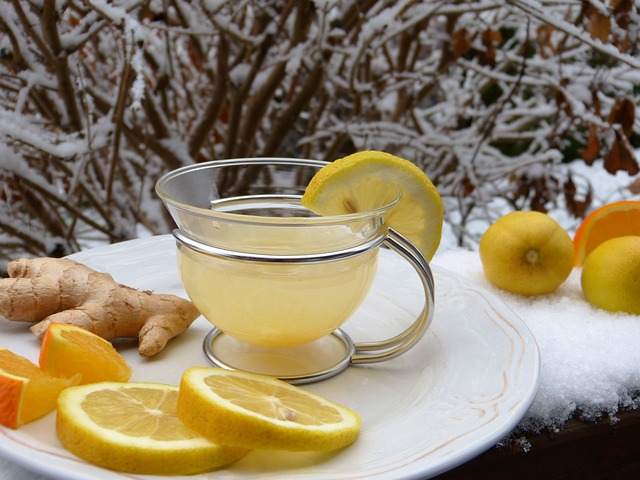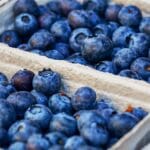Liver health is greatly impacted by diet as many food items include substances that have been proven to enhance liver enzymes, prevent the accumulation of fat, as well as reduce inflammation and oxidative stress.
Maintaining your liver’s health is crucial because it undertakes various tasks. It not only produces vital substances like proteins, cholesterol, and bile but also stores carbohydrates, minerals, and vitamins. Moreover, it effectively eliminates toxins such as alcohol, medications, and metabolic byproducts.
The following write-up enumerates 11 top-notch edibles that aid in maintaining the health of your liver.
What makes food good for your liver
Enhancing the health of your liver can be easily achieved by incorporating nutrient-rich foods into your diet. This is due to the fact that numerous foods have elements such as antioxidants that can aid in liver health by minimizing inflammation, alleviating oxidative stress, and hindering cell damage.
Certain types of food are abundant in fiber, enabling weight control and proper liver functionality. Other food items are rich in valuable nutrients like protein or healthier fats that could potentially aid in the management or prevention of other illnesses associated with liver disease, such as diabetes.
1. Sunflower Seeds
A handful of sunflower seeds provides half the recommended daily allowance of vitamin E, which has been linked with a reduced risk of liver cancer. The Shanghai Women’s Health Study found that the more vitamin E people consumed in their diet (from either foods or supplements), the lower their risk of liver cancer was.
2. Oats
Oats and other whole grains may benefit liver health in several ways. One study gave 10g of fermentable fiber to people with liver cirrhosis for 30 days and observed improvements in liver function. These effects were mediated via improvements to the balance of gut bacteria.
4. Turmeric
5. Coffee
6. Walnuts
Walnuts, and nut consumption in general, are linked with a reduced risk of NAFLD, especially in men. One study specified that 15-30g of nuts and seeds per day was the amount linked with protective effects. Nuts are an excellent source of healthy fats, vitamin E, fiber, and polyphenols (plant substances with antioxidant and other beneficial properties).
7. Spinach
Spinach is rich in many nutrients including vitamins A, C and K, iron, magnesium, manganese, polyphenols. It is known to have beneficial health effects including antioxidant and anti-inflammatory actions and protecting against various health issues such as obesity and high cholesterol.
One study found that the more spinach people eat (either raw or cooked) the lower their risk of NAFLD. Other dark green leafy vegetables such as kale, rocket (arugula), and watercress should have similar benefits for liver health.
8. Oily Fish
9. Olive Oil
In one study, 93 Asian men with NAFLD were asked to use olive oil for cooking for 6 months and there were significant improvements in fatty liver, liver span, and various other health markers, including insulin resistance and cholesterol. Another study found a 29% reduction in liver fat content in patients with type II diabetes, after just 8 weeks of consuming olive oil.
10. Garlic
11. Grapefruit
The liver can benefit from the natural antioxidants present in grapefruit, namely naringin and naringenin, as found by various animal studies indicating their protective abilities towards the liver.
Grapefruit has two known mechanisms for providing protection: reducing inflammation and safeguarding cells.
Research has demonstrated that antioxidants can aid in the prevention of hepatic fibrosis, which is a detrimental disorder where the liver accumulates an excessive amount of connective tissue due to persistent inflammation.
In addition, naringenin was found to reduce liver fat levels and increase the presence of fat-burning enzymes in mice that were given a diet high in fat, thereby potentially impeding the accumulation of surplus fat.
Lastly, a different study on animals discovered that naringin might boost the capacity to metabolize alcohol and counter the harmful effects of alcohol on the liver.
To date, the impact of grapefruit or its constituents have not been examined, only the fruit itself. Animal testing has been the primary method for evaluating the antioxidants in grapefruit. Despite this, the available evidence indicates that grapefruit could promote liver well-being by reducing inflammation and preventing harm.
12. Blueberries and Cranberries
Anthocyanins, antioxidants responsible for the distinct colors of berries, are present in blueberries and cranberries. These have been associated with numerous health advantages. Various animal experiments have shown that the liver can be kept healthy by consuming whole blueberries and cranberries, as well as their extracts or juices.
It’s worth noting that a cranberry supplement taken for half a year was discovered to enhance hepatic steatosis, otherwise known as fatty liver, in individuals with NAFLD in a human trial. Meanwhile, another trial involving rats found that certain types of antioxidants found in blueberries decelerated the progression of fibrosis, which is the formation of scar tissue, in their livers.
Additionally, test-tube studies have demonstrated the ability of blueberry extract to hinder the proliferation of liver cancer cells in humans. Nevertheless, additional research is necessary to confirm whether this outcome can be duplicated in human trials.
Incorporating these berries into your daily diet can aid in providing your liver with necessary antioxidants, thus promoting a healthy liver.
13. Grapes
Red and purple grapes contain plant compounds that are considered beneficial for liver health. Research indicates that consuming grapes or grape juice can offer several advantages such as:
- lowering inflammation
- preventing cell damage
- increasing antioxidant levels
In a 2010 study involving individuals with NAFLD, it was found that taking grapeseed extract as a supplement for a period of three months resulted in improved liver function.
However, a recent study conducted in 2022 indicates that consuming grape products has minimal impact on liver enzymes and may not be beneficial in enhancing liver function. Further research is required before endorsing the use of grapeseed extract for supporting liver wellbeing.
14. Prickly Pear
Opuntia ficus-indica, also referred to as prickly pear, is a widely consumed variety of cactus which is primarily known for its fruit and juice. It has been utilized for generations in traditional medicine as a remedy for various ailments, including:
- wounds
- fatigue
- digestive issues
- liver disease
In 2004, a study comprising 55 individuals demonstrated that the plant’s extract aided in alleviating hangover symptoms.
If the extract was taken prior to consuming alcohol, participants were found to have a decreased likelihood of experiencing adverse effects such as nausea, dry mouth, and lack of appetite. In addition, they were only half as likely to experience a severe hangover, as the liver detoxifies alcohol.
The research demonstrated that the reasons behind these impacts were linked to the decrease in inflammation that frequently takes place following alcohol consumption. In another animal study, it was discovered that ingestion of prickly pear extract assisted in controlling fat accumulation in the liver and curbing inflammation.
In addition, research conducted in a test tube indicated that specific antioxidant components present in prickly pear may safeguard the liver against alcohol-induced impairment. It is crucial to carry out further human investigations, preferably with the usage of raw prickly pear and its juice rather than extract. However, the current research has established the beneficial impact of prickly pear on the liver.
15. Beetroot Juice
Betalains and nitrates are present in beetroot juice, which possess antioxidants that help improve cardiac health while reducing inflammation and oxidative damage. It is logical to conclude that consuming beets could have an identical impact on health, but most studies have relied on beetroot juice. You may extract beet juice yourself or obtain it from a store or online.
Numerous animal studies indicate that beetroot juice can minimize oxidative harm and inflammation in the liver. Nevertheless, further research is required to validate the advantages of beetroot juice for human liver well-being, despite the encouraging results of animal studies.
16. Cruciferous Vegetables
Cruciferous veggies are recognized for their distinctive taste and high fiber content, as well as for their abundance of beneficial plant compounds. Some examples of cruciferous vegetables include:
- broccoli
- Brussels sprouts
- cabbage
- kale
- cauliflower
According to research, cruciferous vegetables possess specific compounds that modify the detoxification procedure and shield against detrimental substances. Furthermore, a study on animals revealed that broccoli had the potential to prevent the occurrence of fatty liver in mice.
In a study conducted in 2016, it was discovered that mice which were provided with broccoli had lower instances of tumors and fatty liver disease compared to those in the control group. Even though there are minimal research studies conducted in humans, cruciferous vegetables appear to be a hopeful food option for enhancing liver health.
17. Nuts
Key nutrients abundant in nuts include:
- healthy fats
- antioxidants
- vitamin E
- beneficial plant compounds
Various health benefits, particularly for the heart, are attributed to this mixture, with potential benefits for the liver. Recent research conducted in 2019 resulted in the discovery of a link between a diet rich in nuts and a potential decrease in the risk of NAFLD.
Likewise, findings from a research involving approximately 24,000 individuals demonstrated that those who ingested nuts on a regular basis had a decreased likelihood of developing non-alcoholic fatty liver disease compared to those who consumed nuts occasionally. Although additional top-notch investigations are warranted, initial evidence indicates that nuts play a crucial role in maintaining the health of the liver.
Tips for a Healthy Liver
- Limit alcohol which has to be processed by the liver. If you have a liver condition or are at risk of developing one, avoid alcohol completely.
- Maintain a healthy weight – being overweight increases your risk of non-alcoholic fatty liver disease; up to 85% of obese people are believed to have the condition.
- The typical high-fat, high-sugar, Western diet has been shown to be harmful to the liver and should be avoided. Instead, follow traditional dietary patterns such as the Mediterranean diet or a whole-food plant-based diet consisting of 80-100% plant foods.
- Limit processed foods that often contain chemical additives, salt, and refined sugars. All of these additives can contribute to poor liver health.
- Avoid high-fructose corn syrup found in many processed foods and soft drinks – high consumption is linked with an increased risk of developing fatty liver disease



